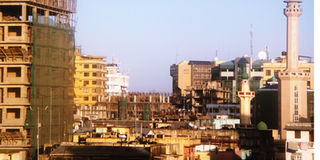The changing face of Dar es Salaam

FILE | PHOTO
What you need to know:
DAR FACT FILE
- Population: Over 4 million
- Nickname: ‘Bongo’, meaning ‘brain’ or ‘wit’ – what you need to survive in the city
- Origins: Founded in 1862, when Sultan Seyyid Majid of Zanzibar chose it as a site for his summer palace
- Revived in 1887, when the Germans established it as one of their main commercial stations on the coast – later becoming the capital of German East Africa
- Retained as the capital by the British when they took over Tanganyika after the Second World War
- Lost the title of capital when Nyerere moved it to Dodoma in 1973 – though Dar is still regarded by many as the ‘real’ capital of Tanzania.
Accommodation
- The full range: from expensive five star hotels to cheap guest houses; in the city, at Oyster Bay and along the Indian Ocean beaches, especially to the north.
- Getting there: By air: KQ daily at $455; 540 Aviation daily at $270
- By bus: shuttle from Nairobi to Arusha at $60 return (6 hours) – and then by public transport to Dar es Salaam (4 hours)
In the mid-1980s, I had a research job that meant travelling out twice a year from my university in the UK to spend a couple of weeks each in Dar es Salaam and Nairobi.
I always made sure that I did the Dar leg first – on the principle of saving the best till last.
In those days, the fag-end of Ujamaa, the Tanzanian economy, was in dire straits. I made sure to fly with even light bulbs as well as toothpaste and soaps for Tanzanian university colleagues, because you couldn’t buy such basic things in the shops.
So the common wisecrack of Kenyans in those days was almost true: “Tanzanians say that Kenya is a man-eat-man society – well, theirs is a man-eat-nothing society”.
Once-affluent suburb
Occasionally, I would stay at the Oyster Bay Hotel, supposedly the most comfortable hotel in that seaside and once-affluent suburb of the city. But the amenities were quite rudimentary and the food was, to say the least, plain.
There was a young Turkish diplomat staying there. He always carried to breakfast his own jar of honey – because there was nothing else provided to eat with the toast but margarine.
One evening, I was chatting with him over a drink on the terrace. (Beer was always available. Wasn’t it Nyerere himself who said that everywhere in Africa it is easier to get a bottle of beer than a glass of clean water?)
That evening as we were talking a plane flew overhead. The young man stopped talking and tilted his head and watched the plane till it was out of sight.
“Excuse me,” he said. “I’m very sorry but, you see, I have this fantasy that all the pilots in the world will one day forget how to fly – so how then will I be able to get away from this bloody awful country?”
But anyone of you who has been in Dar es Salaam in recent years will know how dramatically things have changed.
I was there for a few days just two weeks ago. The middle-range hotel we were staying in – the Peacock in Bibi Titi Mohamed Road – is typical of the new Dar. It is clad in the kind of blue glass that you now see on so many high-rise buildings all across the city.
It depends not on foreign tourists but on local as well as foreign businessmen and professionals. It offers comfortable and well-equipped rooms, good communication facilities and efficient service. It offers excellent entertainment, too, we discovered.
On what we thought was going to be a quiet evening and early night at the hotel, we found the Kalunde Band and dancers on stage in the dining room.
Superb
They were superb – and they took me back to those times, 20 or more years ago, when Congolese bands were regularly playing in the nightclubs of Nairobi and Dar.
“Are you from the Congo?” I asked Deborah, the lead singer and, as I was soon to discover, the band manager.
“No, no!” she protested. “We are from here – from here in Dar.”
Another evening, we went for a drink and then dinner at the Kilimanjaro Kempinski on the Kivukoni Front.
The Kilimanjaro started life back in the 1960s as a state-run hotel. It was then a square, sombre and soon shoddy place. It is now so very smart and sophisticated. From the top-floor bar, the view over the harbour is very special.
We also went in search of the Oyster Bay Hotel. The young taxi driver had never heard of it.
We didn’t find it. Maybe it has long gone. But we found plenty of other resorts, restaurants and bars along Coco Beach, Toure Drive and round into Msasani Bay.
Yes, things in Dar es Salaam are still dramatically changing. I think that, these days, the young Turkish diplomat would not be so keen to get away.
John Fox is Managing Director of IntermediaNCG Email: [email protected]



